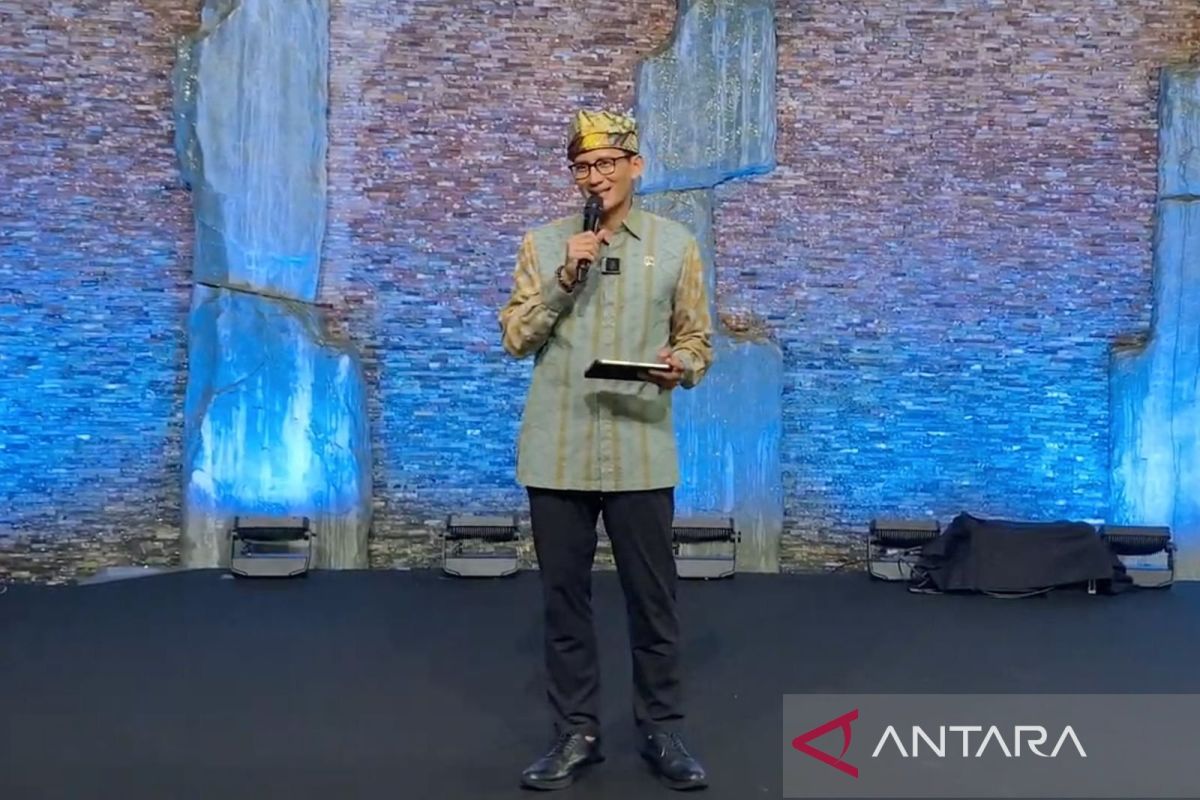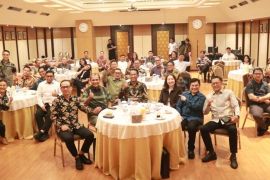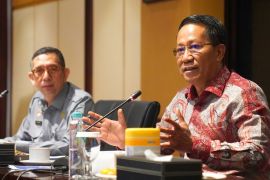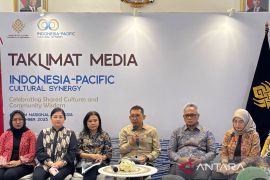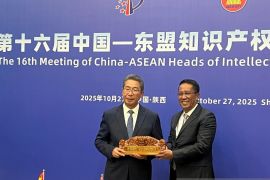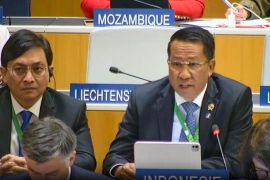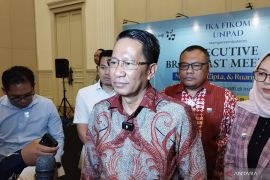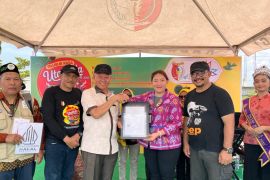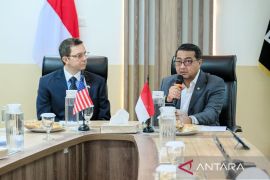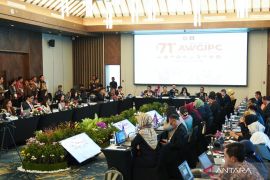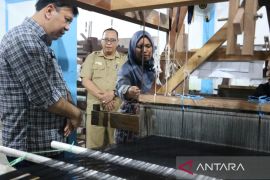Tourism and Creative Economy Minister Sandiaga Uno spotlighted Indonesia's potential in intellectual property (IP) in the presence of representatives of member states of the World Intellectual Property Organization (WIPO) in Geneva, Switzerland.
During the ASEAN Reception on the Sidelines of the 65th Series of Meetings of the Assemblies of the Member States of WIPO on Monday (July 15), Uno introduced West Sumatran Tari Piring (plate dance) to international delegates in attendance.
"This is one of the plethora of traditional arts Indonesia is blessed with. We hope that this performance can represent Indonesia's traditional and cultural wealth," Uno noted in his ministry's statement on Tuesday (July 16).
The minister highlighted that intellectual properties in Indonesia are almost inseparable from local traditions and cultures.
"Intellectual properties in Indonesia are closely related to local traditions and cultures. This is because nearly all intellectual properties in the country embed local cultural elements," he said.
On that note, the minister informed the audience that the Indonesian government had been working in collaboration with various parties to ensure the sustainability of local traditions and cultures.
"Apart from being sources of inspiration, the varying Indonesian traditions and cultures have also become the main selling point of the country's tourism and creative economy sectors. This is why we always strive to protect this wealth in the midst of the rapidly changing era," he stated.
Regarding Indonesia's stance on the global intellectual property scene, Law and Human Rights Minister Yasonna H. Laoly pointed out that the government is committed to supporting all work programs run by WIPO.
Speaking at the opening of the WIPO 65th Series of Meetings on July 9, he also emphasized that Indonesia would take measures to accelerate the ratification of the WIPO Treaty on Intellectual Property, Genetic Resources, and Associated Traditional Knowledge he had signed earlier on July 8.
Related news: Indonesia in WIPO's top 10 list for IP applications
Related news: Ministry seeks patents for products made by, for the disabled
During the ASEAN Reception on the Sidelines of the 65th Series of Meetings of the Assemblies of the Member States of WIPO on Monday (July 15), Uno introduced West Sumatran Tari Piring (plate dance) to international delegates in attendance.
"This is one of the plethora of traditional arts Indonesia is blessed with. We hope that this performance can represent Indonesia's traditional and cultural wealth," Uno noted in his ministry's statement on Tuesday (July 16).
The minister highlighted that intellectual properties in Indonesia are almost inseparable from local traditions and cultures.
"Intellectual properties in Indonesia are closely related to local traditions and cultures. This is because nearly all intellectual properties in the country embed local cultural elements," he said.
On that note, the minister informed the audience that the Indonesian government had been working in collaboration with various parties to ensure the sustainability of local traditions and cultures.
"Apart from being sources of inspiration, the varying Indonesian traditions and cultures have also become the main selling point of the country's tourism and creative economy sectors. This is why we always strive to protect this wealth in the midst of the rapidly changing era," he stated.
Regarding Indonesia's stance on the global intellectual property scene, Law and Human Rights Minister Yasonna H. Laoly pointed out that the government is committed to supporting all work programs run by WIPO.
Speaking at the opening of the WIPO 65th Series of Meetings on July 9, he also emphasized that Indonesia would take measures to accelerate the ratification of the WIPO Treaty on Intellectual Property, Genetic Resources, and Associated Traditional Knowledge he had signed earlier on July 8.
Related news: Indonesia in WIPO's top 10 list for IP applications
Related news: Ministry seeks patents for products made by, for the disabled
Translator: Sinta Ambarwati, Tegar Nurfitra
Editor: Tia Mutiasari
Copyright © ANTARA 2024
